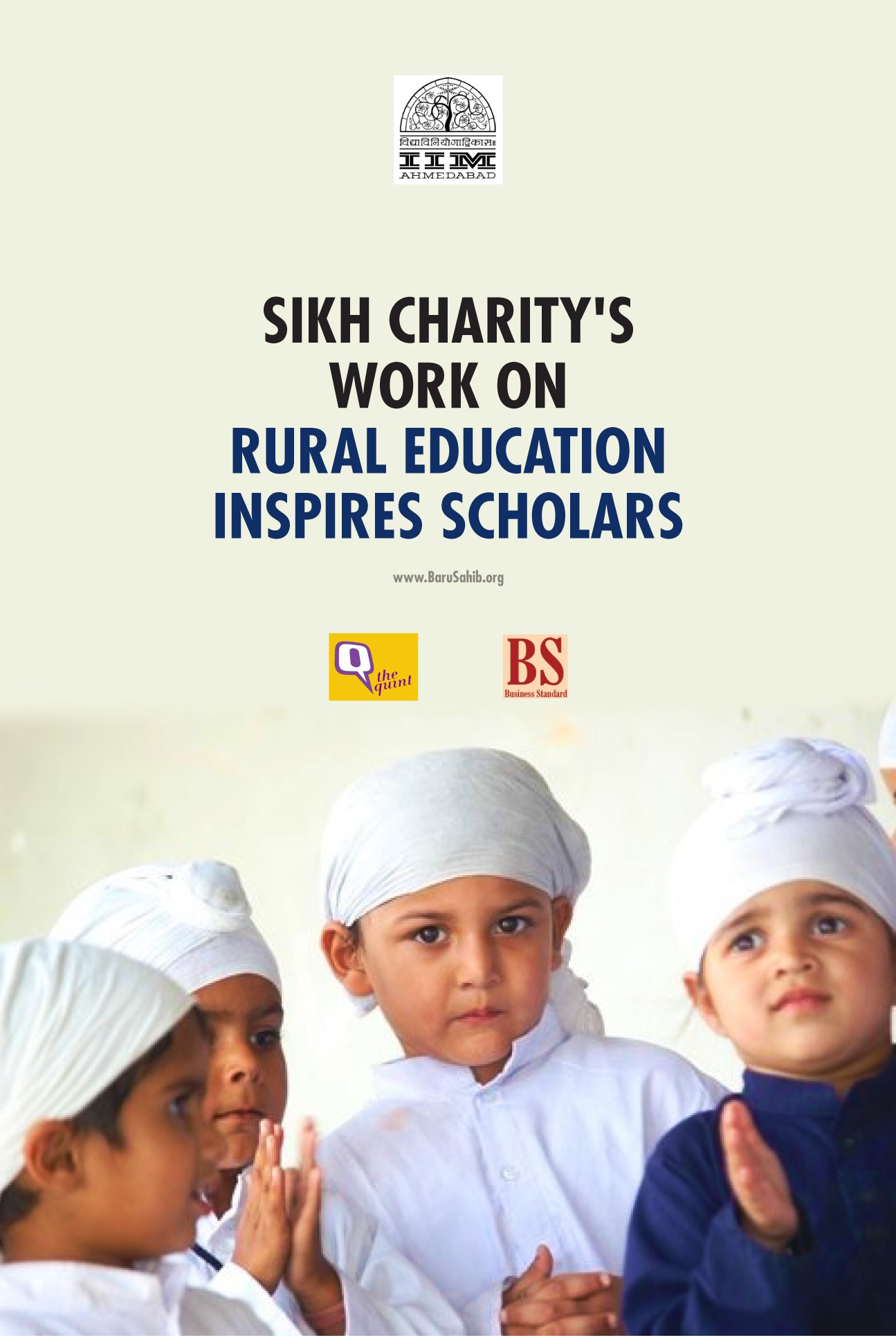A Sikh charity’s mission to fight the ills of society by bringing value-based education to the doorsteps of India’s rural children has now become a sought-after lesson in management, thanks to a case study on this charity by prominent scholars, including one from the Indian Institute of Management, Ahmedabad (IIM-A).
And why not? After all, the strategy of this social enterprise introduced by the Himachal Pradesh-based Kalgidhar Trust-Society led to stellar growth of its educational institutions, particularly the Akal Academies — from one school in 1986 to 129 schools catering to 70,000 students in 2018.
Co-authored by Vijaya Sherry Chand, the study, titled “The Akal Academies”, not only got featured in Harvard Business Review’s case study collection, but also won the “Philip Thomas Memorial Case Award for the Best Case” in IIM-A at its 53 rd Annual Convocation in March this year, the Kalgidhar Trust said in a statement.
“The key factor that makes our schools different from others is that we impart value-based education to students, which is a blend of both spiritual and modern scientific education,” Baba Iqbal Singh, a spiritual leader of the Sikh community and President of the trust, told IANS in an email interaction.
Another Sikh spiritual leader, Sant Attar Singh, who conceptualised the mission of synthesising scientific education with moral values, founded the charity along with Sant Teja Singh and Baba Iqbal Singh at Baru Sahib in Solan district of Himachal Pradesh in 1963 to spread the message of universal brotherhood.
The educational framework, adopted by the Kalgidhar Trust, gives equal importance to both character development as well as academic attainment of underprivileged children in rural areas.
“Our medium-term goal is to build a network of 500 schools and educate a million kids by the next decade,” Davinder Singh, Secretary of the trust, added.
While the educational activities of the trust have mainly been limited to the northern parts of India, it focuses on reaching out to kids of those areas which are generally missed out by both the public and the private education providers.
For example, the areas near the India-Pakistan border where well-functioning schools are few and far between, have been the hotbed of educational activities for the Kalgidhar Trust.
“The schools there are poorly staffed as no teacher wants to go near a conflict zone. Moreover, due to higher rates of unemployment in the border districts as well as in the nearby towns, the youth have been easy recruits for mafias,” Baba Iqbal Singh said.
What has driven the success of Akal Academies are the Trust’s focus on training teachers, maintaining a student-teacher ratio of one teacher per 20 students and getting the community involved in building the schools.
By motivating local donors to donate their lands and encouraging local volunteers to actively help in setting up the schools, the organisation tries to create a sense of ownership and accountability within the community.
On an average a student needs to pay around Rs 24,000 per year in tuition fees, the trust officials said, adding that around 19,000 of its students enjoy free or subsidised education.
While a 400-student school can meet the operational cost of the school, a 600-student size helps in meeting the construction cost as well, they added.
The bedrock of the financial management of the Akal Academy, the officials said, is strict separation of capital investment and operational expenditure. It focuses on financial self-sufficiency of each school, preferably within four years.
To get admission to any of the schools set up by the trust, one needs to appear for an entrance test “irrespective of any caste, creed, religion, and gender, etc.”
The Kalgidhar Trust’s work on rural education sends an important message – noble intentions must also be backed by sound financial strategies and unswerving commitment to a cause
By Gokul Bhagabati

